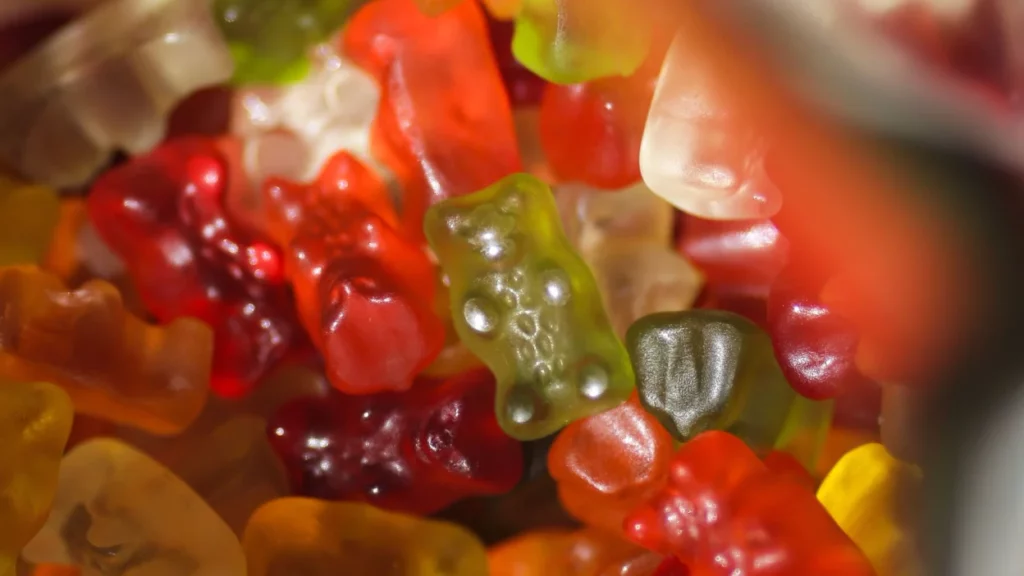Ever found yourself eyeing those colorful Haribo gummies and wondering, “Is Haribo halal?” You’re definitely not alone. For many of us with a sweet tooth, navigating the candy aisle as a Muslim can feel like a mini-adventure. We all love those chewy treats, but sticking to halal dietary laws is a must.
Haribo, the brand we’ve all grown to love, is famous worldwide for its gummy bears and other sweet delights. But here’s the million-dollar question: can we enjoy these sugary treats without breaking our halal diet? It’s not just about the taste; it’s about making sure what we eat aligns with our beliefs.
In this article, we’re digging deep into the world of Haribo and halal certification. We’ll explore what makes a product halal, take a closer look at Haribo’s ingredients, and uncover which of their products, if any, are Muslim-friendly. So, if you’ve ever paused with a packet of Haribo in your hand, wondering if it’s okay to indulge, you’re in the right place. Let’s get to the bottom of this sweet dilemma together!
Halal 101: Navigating the Sweet Spot
Alright, let’s break it down: what exactly does “halal” mean when we’re talking candy? Halal isn’t just a label; it’s a lifestyle. It means the food we eat is not just allowed, but also prepared in ways that fit Islamic law. From gummy bears to chocolate bars, if it’s got the halal stamp, we’re good to go.
Now, the candy world has its tricky spots, especially with ingredients like gelatin, which is a biggie. Gelatin often comes from animals, and if those animals aren’t processed in a halal way, well, that’s a no-go for us. And it’s not just gelatin; we’ve also got to watch out for alcohol-based flavors or any other ingredient that doesn’t make the halal cut.
But here’s the kicker: getting that halal certification isn’t just about the ingredients. It’s also about how they’re mixed together. Think of it like a recipe – every step, from start to finish, has to follow Islamic guidelines to earn that halal label.
Haribo’s Halal Hustle: Ingredient Investigation
Now, let’s zoom in on Haribo. Those gummy bears aren’t just tempting; they’re a topic of big debate in the halal community. What’s really in them? And more importantly, can we enjoy them guilt-free on a halal diet?
First up, gelatin. It’s the backbone of that chewy texture we all love. But here’s where things get sticky. Gelatin typically comes from animals, and if those animals aren’t slaughtered according to Islamic law, those gummies are off the table. Haribo’s usual recipe might have us pause for thought.
But hold on, there’s a twist! Haribo knows we’re craving those sweets, so they’ve started making waves with halal-certified products. That’s right, they’ve got versions made with plant-based gelatin or gelatin from halal-certified sources. It’s like they’re saying, “We’ve got you covered!”
Now, it’s not just about the gelatin. We’re also keeping an eye out for any hidden non-halal ingredients. Alcohol-based flavorings? They’re a no. Any other sneaky additives that don’t fit the halal bill? We’re on the lookout.

In some parts of the world, Haribo is stepping up its game with a range of products that proudly wear the halal label. These special versions are crafted to fit right into a halal lifestyle, from the ingredients list to the way they’re whipped up in the factory.
Diving into the sweet world of Haribo, we discover a mix that sparks curiosity for those following a halal diet. The ingredients list reads like a candy lover’s dream, with glucose syrup and sugar setting the stage for that signature sweetness. Gelatin pops up, raising the halal question mark, while dextrose keeps the energy coming.
A sprinkle of less than 2% citric acid, alongside a blend of artificial and natural flavors, adds that tangy twist. The texture gets its shine from palm oil, palm kernel oil, and a glossy finish thanks to carnauba wax and beeswax. The colors? A vibrant palette with Yellow 5, Red 40, and Blue 1. But heads up, allergy-aware folks: traces of wheat and milk may sneak in. This list not only satisfies our candy cravings but also serves as a conversation starter about what cuts a halal diet.
Haribo around the World: Halal or Not?
Ever wondered if Haribo tastes different depending on where you are? Well, it’s not just about taste; it’s about whether those gummies are halal, too. For our friends in the USA and UK, the halal journey with Haribo gets really interesting.
Let’s start with the USA. The land of the free loves its Haribo, but finding halal-certified versions can be a bit like a treasure hunt. The key? Look out for those special packs marked with a halal label. They’re around, but you might need to do a bit of detective work to find them.
Hopping across the pond to the UK, the story takes a sweet turn. Haribo’s got a bit more for our halal-conscious buddies. With a growing Muslim population, the UK sees more halal-certified Haribo options hitting the shelves. It’s like Haribo’s giving a big, gummy thumbs-up to inclusivity. But most of the products in UK are haram since they contain pork gelatin.
But here’s the scoop: not all Haribo candies are created equal. The halal status can change based on where and how they’re made. That’s because different countries have different rules and different versions of ingredients. The gelatin source is the biggie – it’s all about ensuring it’s from halal-certified animals or switching it up with a plant-based alternative.
So, whether you’re munching on gummies in the USA or enjoying them in the UK, remember, the halal status of Haribo can vary. Always keep an eye out for that halal label or check in with local halal certifiers
Spotting Halal Haribo: A Handy Guide
Got a craving for Haribo but sticking to halal? No worries, I’ve got your back! Here’s a quick guide to help you spot those halal-friendly Haribo treats, making sure your snack game stays on point.
First up, the label is your best friend. Look for the halal certification mark. It’s like a green light saying, “Go ahead, dig in!” This little symbol is your shortcut to snacking without second-guessing.
Next, ingredient check! Remember our chat about gelatin? That’s the tricky part. If the pack says “plant-based gelatin” or mentions a halal gelatin source, you’re in the clear. It’s all about knowing what’s inside before taking a bite.
Don’t forget, not all Haribo packs are the same everywhere. What’s halal-certified in one country might not be in another. It’s a bit like candy espionage – always on the lookout for the right clues.
And if you’re ever in doubt, there’s a simple solution: hit up the Haribo website or contact their customer service. They’re like the encyclopedia of gummy knowledge, ready to answer your halal queries.
Also Read: Decoding the Halal Status of Root Beer
Sweet Alternatives: Finding Halal Haribo and Beyond
Craving some gummy goodness but not sure about Haribo’s halal status? No stress! There are plenty of sweet alternatives to keep those cravings at bay, all while sticking to halal guidelines.
First off, the world of halal sweets is bigger than you might think. Many brands are stepping up, offering gummy candies that are 100% halal-certified. From gummy bears to fruity chews, these treats are made with halal-friendly ingredients, so you can munch away without a worry.
Don’t overlook local halal shops. These gems often stock a variety of halal-certified candies, including some Haribo options you might not find in regular stores. It’s like a candy treasure trove waiting to be discovered!

Feeling adventurous? Why not make your gummy candies? It’s easier than you think, and the internet is chock-full of halal gummy recipes. This way, you control what goes in, ensuring everything is up to halal snuff. Plus, it’s a fun kitchen experiment.
And here’s a tip: keep an eye on social media and halal food blogs. They’re always buzzing with the latest on halal snack finds and can be a goldmine for discovering new and exciting alternatives to Haribo.
FAQs
Can I find halal-certified Haribo products?
Yes, halal-certified Haribo products do exist! They are specifically made with halal-friendly ingredients, including plant-based or halal-certified animal gelatin. However, availability varies by region, so it’s best to check the packaging for halal certification marks or contact Haribo directly for the most accurate information.
What makes some Haribo products non-halal?
The main ingredient that can make Haribo products non-halal is gelatin, which is derived from animals not slaughtered according to Islamic law. Other concerns include alcohol-based flavorings or colors derived from non-halal sources. Always read the ingredient list to be sure.
Are there specific Haribo lines or products that are always halal?
In some regions, Haribo offers specific product lines that are always halal-certified. These products are made with alternative ingredients, such as fish or plant-based gelatin, to comply with halal dietary laws. The availability of these lines can vary by country, so it’s important to check the packaging or Haribo’s official website for up-to-date information.
Wrapping Up the Sweet Debate: Halal Haribo Uncovered
So, we’ve chewed our way through the juicy details of Haribo and its halal status. From what makes candy halal to scouting out those halal-certified Haribo treats, it’s been quite the adventure.
Remember, the key to halal snacking bliss is to always check the label. That halal certification mark? It’s your green light. And when in doubt, a quick ingredient check or a call to customer service can clear up any confusion. Exploring halal alternatives has never been more exciting. Whether you opt for other halal-certified brands, hit up your local halal shop, or whip up your own gummy creations, there’s a whole world of sweet possibilities out there.










Leave a reply